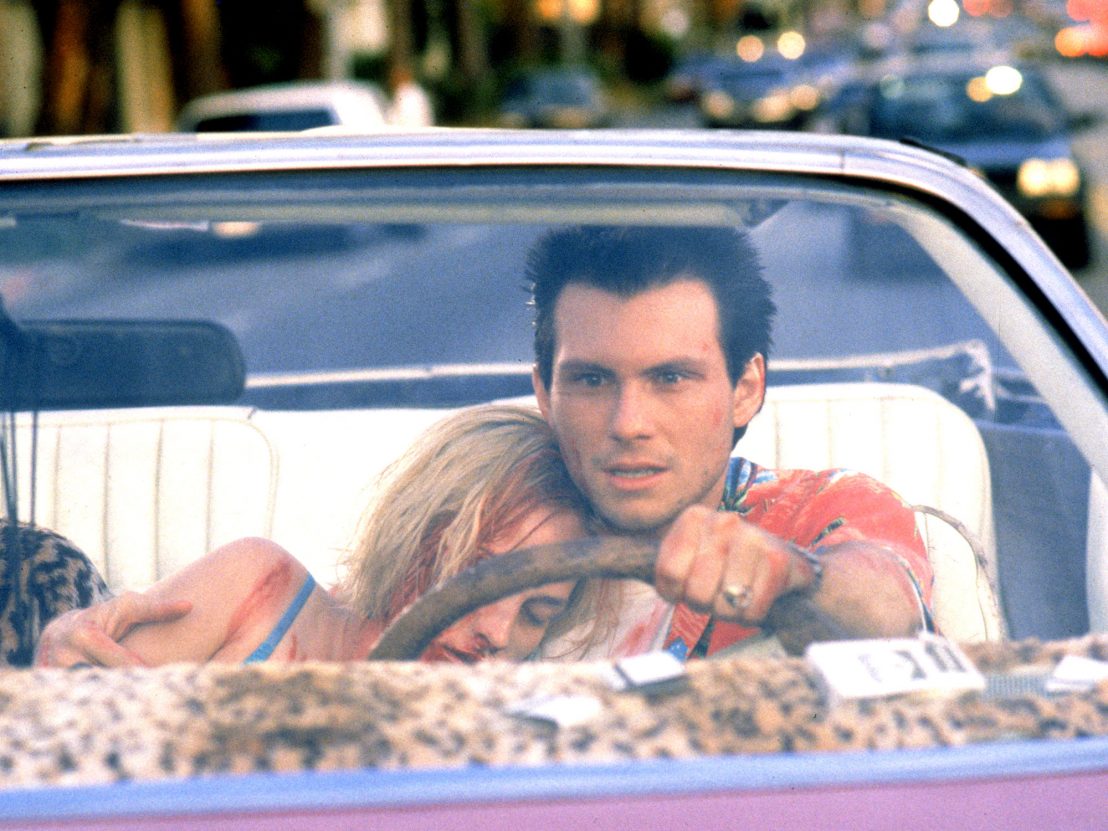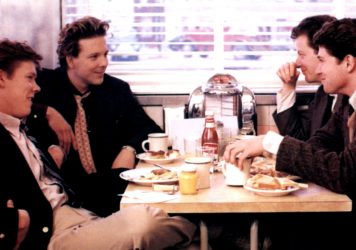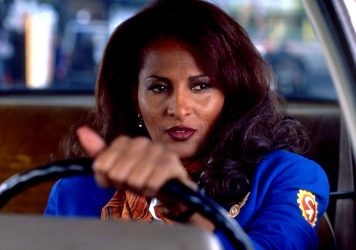
Though the 1993 cult classic True Romance may not have been directed by Quentin Tarantino – the Hollywood up-and-comer took only a screenplay credit, with Tony Scott directing – the early entry in his filmography still bears all his major trademarks. Between the wildly attired characters with memorable names like Clarence Worley and Alabama Whitman, the drug money, the gangsters in pursuit, and the reverent homage to B-movies past, it’s about as Tarantino as they come.
The film barely broke even during its theatrical run, but went on to amass an underground legion of fans and attain the reputation as a standout work of the ’90s, a legacy that will now be further shored up with a handsome new home-video treatment. Today, we’re delighted to share the trailer for Arrow Video’s brand new 4K restoration of the film, replete with nifty add-ons and edifying extras.
Arrow’s forthcoming Blu-ray discs will buff the image to a clarity never before seen on a TV, not just for the theatrical cut but for the director’s cut as well. There will also be audio commentaries galore: one from Tarantino himself, one from Scott, another from stars Christian Slater and Patricia Arquette, and then one analytically-angled track from critic Tim Lucas.
Video interviews with the costume designer, editor, composer, a True Romance fan-festival coordinator, and a Tony Scott biographer will shed new light on the film as well. Other goodies include a double-sided poster, six postcard-sized lobby cards, and a 60-page booklet featuring essays, an oral history, and a eulogy for Tony Scott by Edgar Wright.
Violent and funny, ironic and romantic, the modern-classic lovers-on-the-run story belongs among the ranks of Bonnie and Clyde, Badlands, and Gun Crazy. Arrow’s spiffy new release affirms that much, testifying to the staying power of a crucial zeitgeist object that now feels more like a part of history than the cutting edge.
Published 12 Jul 2021

Her role as lovestruck sex worker Alabama is among the most compelling characters of the 1990s.

Barry Levinson’s rapid-fire dialogue and use of popular music set the blueprint for Tarantino’s style.

Accusations that the director’s work is misogynistic for enacting violence against women are wide of the mark.